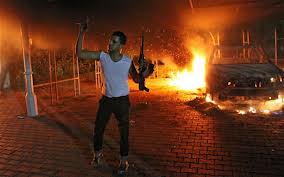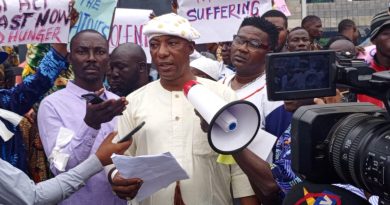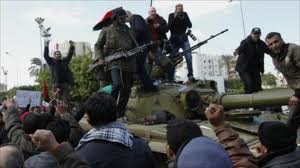Murder in Benghazi
Libya and its revolution had no better friend than J. Christopher Stevens, the United States ambassador who was killed along with three other Americans in Tuesday’s attack on the consulate in Benghazi. It was an outrageous act that deserved the strongest condemnation.
President Obama’s statement of outrage and his vow to bring the killers to justice received bipartisan support, including from politicians otherwise committed to partisan warfare, like the House speaker, John Boehner, and the Senate minority leader, Mitch McConnell, who rarely misses a chance to attack Mr. Obama.
But not from Mitt Romney, who wants Americans to believe he can be president but showed an extraordinary lack of presidential character by using the murders of the Americans in Libya as an excuse not just to attack Mr. Obama, but to do so in a way that suggested either a dangerous ignorance of the facts or an equally dangerous willingness to twist them to his narrow partisan aims.
Mr. Romney could easily have held his fire during this crisis, if he could not summon the decency to support the United States government. Instead, he misrepresented the administration as “sympathizing” with the attackers. There was no truth in what he said. In fact, S ecretary of State Hillary Rodham Clinton made the first official comment on the killings, a strong condemnation, before Mr. Romney released his statement. Even after having a night to reconsider his response, Mr. Romney merely doubled down on his false charges, as he is prone to do.
ecretary of State Hillary Rodham Clinton made the first official comment on the killings, a strong condemnation, before Mr. Romney released his statement. Even after having a night to reconsider his response, Mr. Romney merely doubled down on his false charges, as he is prone to do.
Mr. Stevens, 52, was Washington’s envoy to the rebels in Libya when they were overthrowing Col. Muammar el-Qaddafi. He became ambassador and, undaunted by the dangers, worked to build partnerships among the country’s disparate groups and guide the fragile new democracy during a difficult transition. A fluent Arabic speaker, he had a deep understanding of Libya’s culture and people.
On Wednesday, the Obama administration said it appeared that an organized group armed with mortars and rocket-propelled grenades had exploited a protest over an anti-Muslim video to unleash the attack. Some news reports suggested Al Qaeda may have been responsible. American officials noted the contrast with Egypt, where unarmed protesters, decrying the same video, spontaneously stormed the Embassy perimeter and tore down a flag but did little other damage.
Libya’s shaky new government will need American support to bring the killers to justice. The origins of the video, which mocks the Prophet Muhammad, are not clear. There is considerable speculation about who even produced the film, which largely went unnoticed until it was promoted on the Internet by Morris Sadek, an Egyptian-born Coptic Christian ally of Terry Jones, a Florida pastor and hatemonger whose threats to burn a copy of the Koran inspired deadly riots in Afghanistan in 2010 and 2011.
However offensive the video is, it could never justify the violence in Benghazi and Cairo. But Mr. Jones, Mr. Sadek and whoever made the film did true damage to the interests of the United States and its core principle of respecting all faiths.
Religious fundamentalists, moderates and liberal secularists are all jockeying for power in Middle East nations after the Arab Spring. The violence done on Tuesday was apparently the work of a relatively small group of radicals not associated with any legitimate protest.
The worst thing now would be for the United States to turn away from its commitments to work with Libya and Egypt as they try to build stable new societies. A number of Libyan security guards died trying to save the Americans, and Libyan leaders have condemned the killings and promised to work to apprehend those responsible. Egyptian leaders, inexplicably, have not followed that lead.



